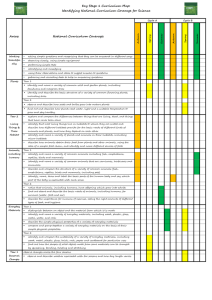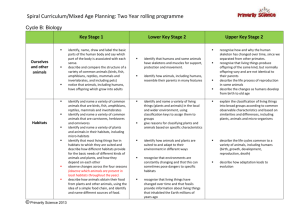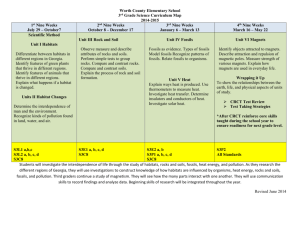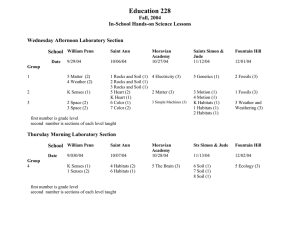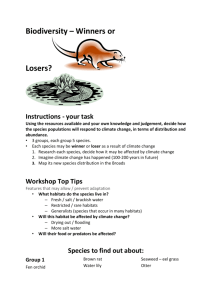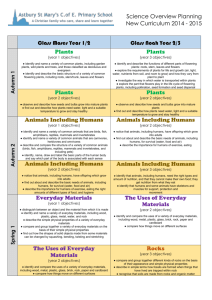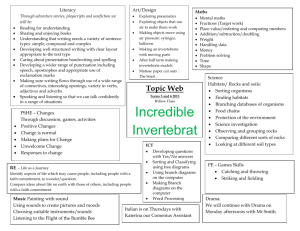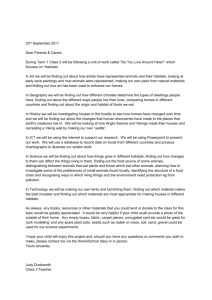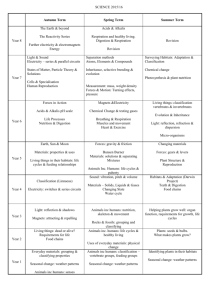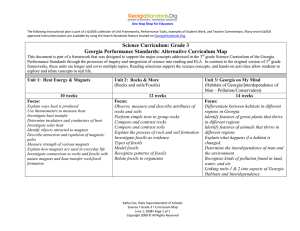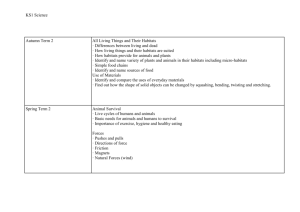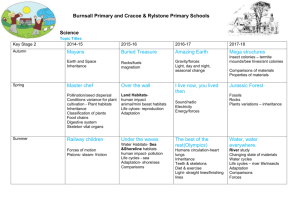Science Curriculum Mapping 2014
advertisement
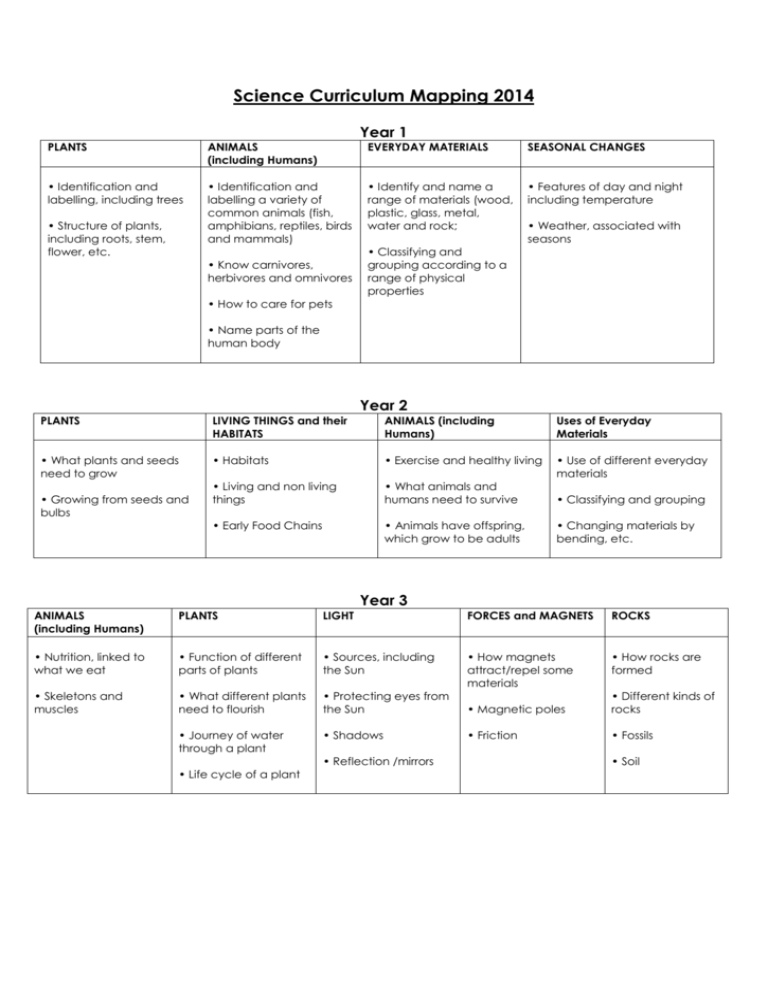
Science Curriculum Mapping 2014 Year 1 PLANTS ANIMALS (including Humans) EVERYDAY MATERIALS SEASONAL CHANGES • Identification and labelling, including trees • Identification and labelling a variety of common animals (fish, amphibians, reptiles, birds and mammals) • Identify and name a range of materials (wood, plastic, glass, metal, water and rock; • Features of day and night including temperature • Structure of plants, including roots, stem, flower, etc. • Know carnivores, herbivores and omnivores • Weather, associated with seasons • Classifying and grouping according to a range of physical properties • How to care for pets • Name parts of the human body Year 2 PLANTS LIVING THINGS and their HABITATS ANIMALS (including Humans) Uses of Everyday Materials • What plants and seeds need to grow • Habitats • Exercise and healthy living • Use of different everyday materials • Living and non living things • What animals and humans need to survive • Classifying and grouping • Early Food Chains • Animals have offspring, which grow to be adults • Changing materials by bending, etc. • Growing from seeds and bulbs Year 3 ANIMALS (including Humans) PLANTS LIGHT FORCES and MAGNETS ROCKS • Nutrition, linked to what we eat • Function of different parts of plants • Sources, including the Sun • How magnets attract/repel some materials • How rocks are formed • Skeletons and muscles • What different plants need to flourish • Protecting eyes from the Sun • Magnetic poles • Different kinds of rocks • Journey of water through a plant • Shadows • Friction • Fossils • Reflection /mirrors • Life cycle of a plant • Soil Science Curriculum Mapping 2014 Year 4 ANIMALS, Including Humans LIVING THINGS and their Habitats STATES OF MATTER ELECTRICITY SOUND • Digestive System • Identify and name a variety of living things (plants and animals) in the local and wider environment and group them • Solids, Liquids and Gases • Identify common appliances • Sources • Heating and cooling (no baking, etc.) • Construct simple circuits including switches • Teeth • Food chains • Predators and prey • Recognise that environments can change and can pose dangers • Vibration • Evaporation and condensation • Loud and faint • Pitch • Common conductors and insulators • Volume • Sound travelling • Alternative sources of energy Year 5 Living things and their habitats Animals, including humans Properties & changes of materials Earth and space Forces • Life cycles of plants and animals • Changes as humans develop from birth to old age • Dissolving • Earth relative to the Sun • Gravity • Birth, growth, development and reproduction • Evaporating • Filtering • Reversible and Irreversible changes • Air Resistance • Moon relative to the Earth • Relationship between Sun, Earth and Moon • Water Resistance • Friction • Gears, Pulleys, Leavers and Springs • Earth’s rotation • Day and night Year 6 LIVINGTHINGS and their Habitats ANIMALS, including Humans EVOLUTION and INHERITANCE LIGHT ELECTRICITY • Classification of living things • Circulatory system • Fossils tell us about the past • How light travels • Electrical circuits (series) • Heart, blood vessels • Vertebrates and invertebrates • Classifying reptiles, amphibians, mammals, insects, etc. • The eye • Off spring • Diet, exercise and drugs • Transport of nutrients through the body • Shadows • Changes to the human skeleton over time • Darwin • Designing traffic lights
